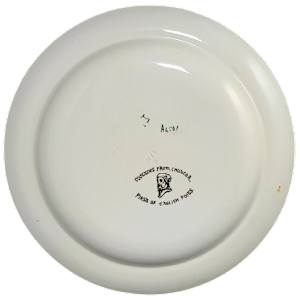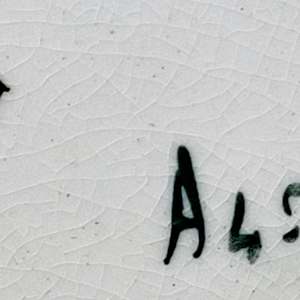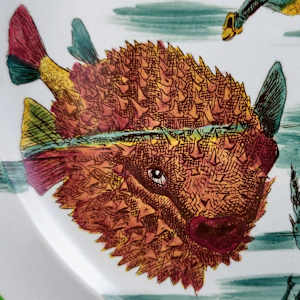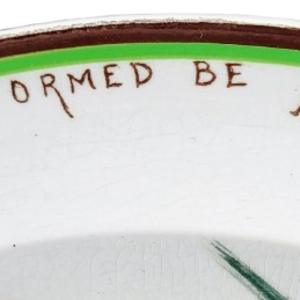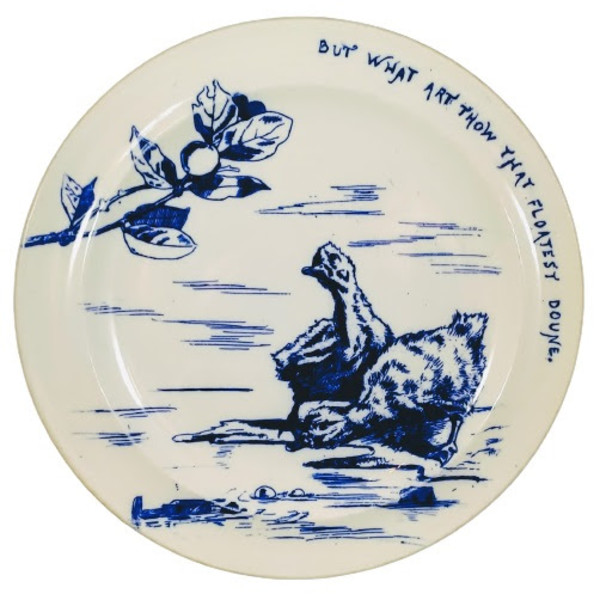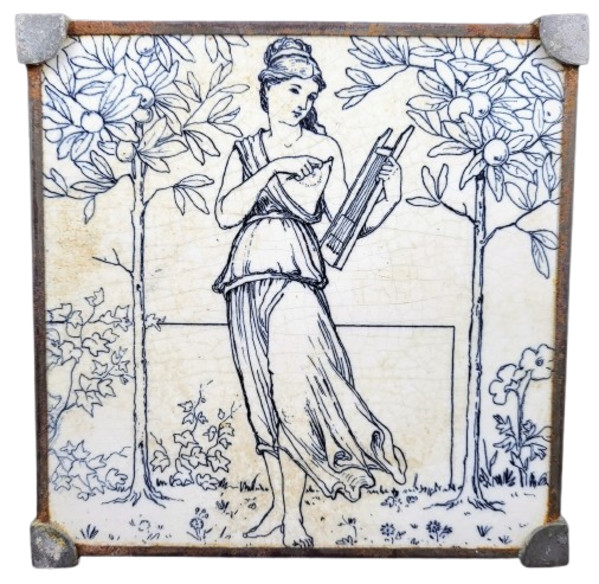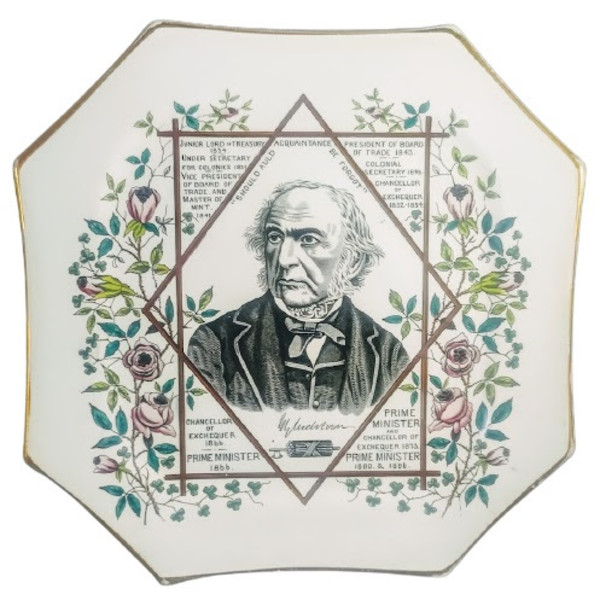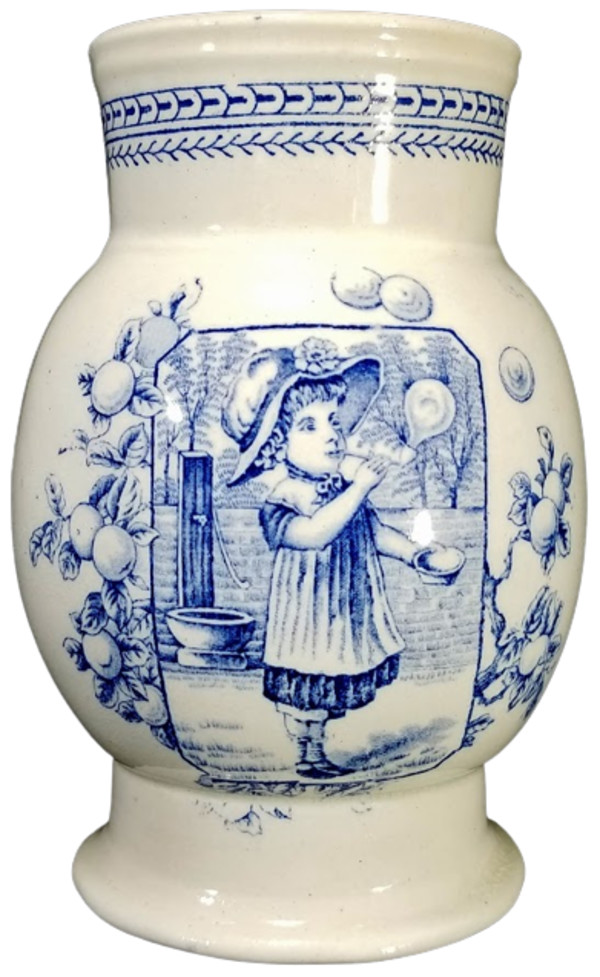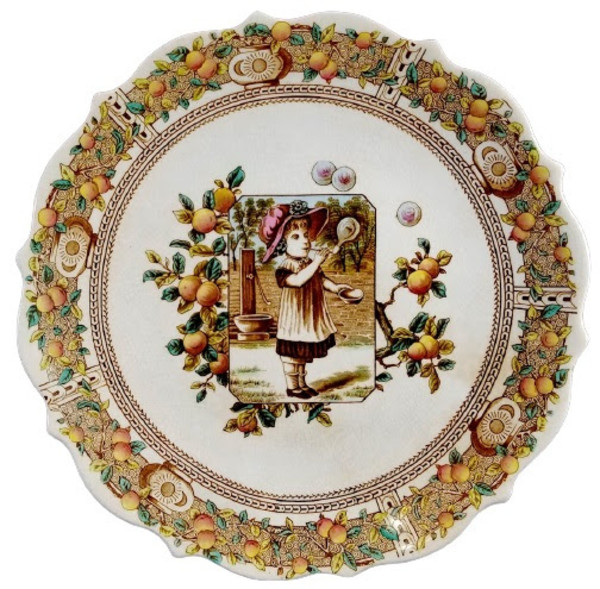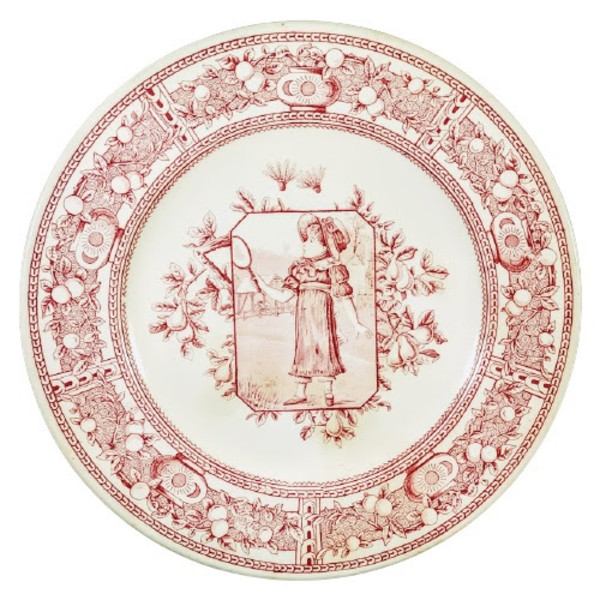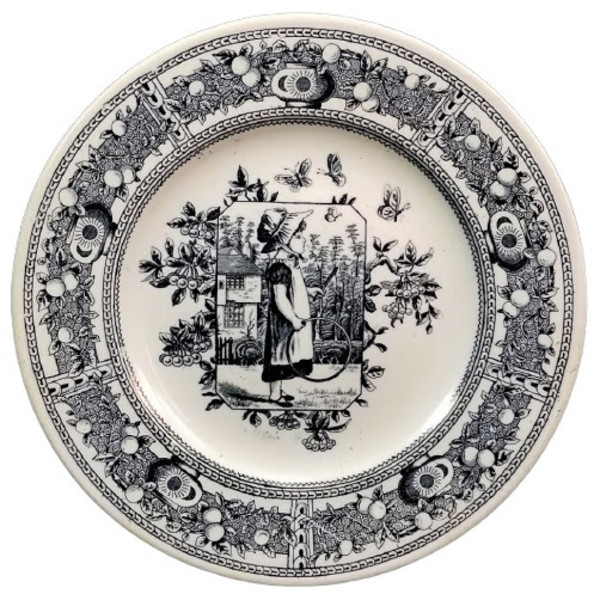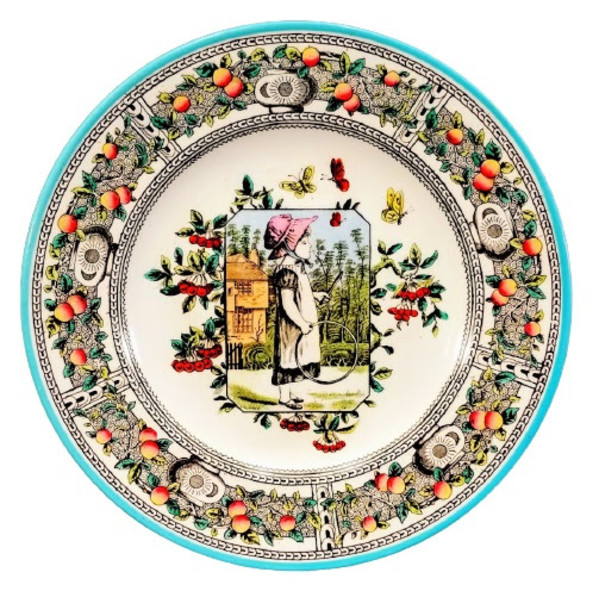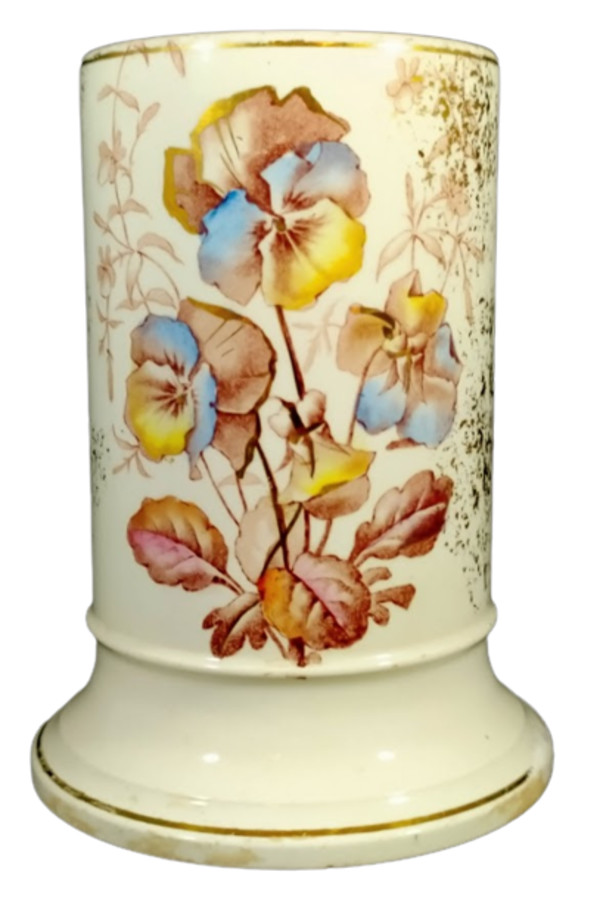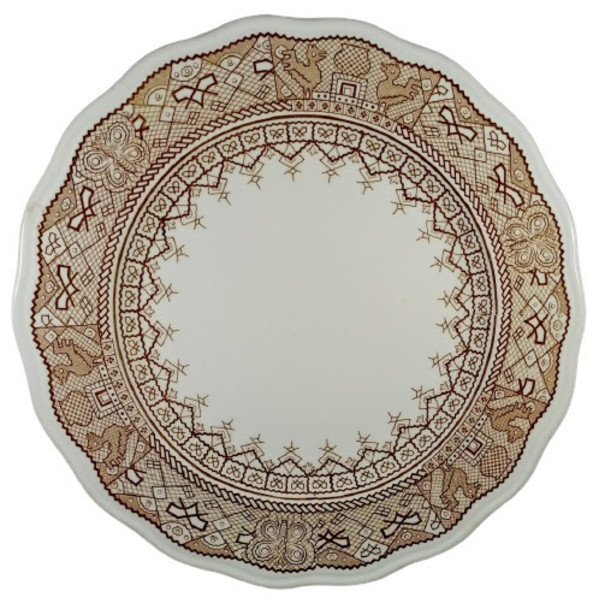- Josiah Wedgwood
- Mottoes from Chaucer, 1881
- Earthenware
- 10 x 10 in (25.4 x 25.4 cm)
-
Not For Sale
Plate, 10 inches diameter. Brown transfer with polychrome clobbering. Printed and impressed maker's marks for Wedgwood. This pattern is part of a series of 12 subjects for pearlware plates and tiles designed c. 1881 that all feature mottos from the English poet Chaucer. The motto printed here is: "So Many Formed Be Nature." This motto seems to come from Chaucer's poem The House of Fame (c. 1375-1385). The stanza it comes from is: "But such a congregation I found / Of folk that seemed to roam about, / Some within, and some without, / As never was seen, nor shall be yet; / That surely in this world is not / So great a number formed by Nature, / Nor have died so many a creature; / So that scarcely in that place / Had I a foot's breadth of space." This pattern features an underwater scene with unusual fish, including a pufferfish.
Josiah Wedgwood was born in Burslem, Staffordshire, on July 12, 1730, into a family with a long tradition as potters. At the age of nine, after the death of his father, he worked in his family's pottery. In 1759 he set up his own pottery works in Burslem. There he produced a highly durable cream-colored earthenware that so pleased Queen Charlotte that in 1762 she appointed him royal supplier of dinnerware. From the public sale of Queen's Ware, as it came to be known, Wedgwood was able, in 1768, to build near Stoke-on-Trent a village, which he named Etruria, and a second factory equipped with tools and ovens of his own design. At first only ornamental pottery was made in Etruria, but by 1773 Wedgwood had concentrated all his production facilities there. During his long career Wedgwood developed revolutionary ceramic materials, notably basalt and jasperware. After Wedgwood's death in Etruria on January 3, 1795, his descendants carried on the business, which still produces many of his designs.
- Subject Matter: Aesthetic (Miscellaneous)
- Collections: Aesthetic Transferware, Josiah Wedgwood

